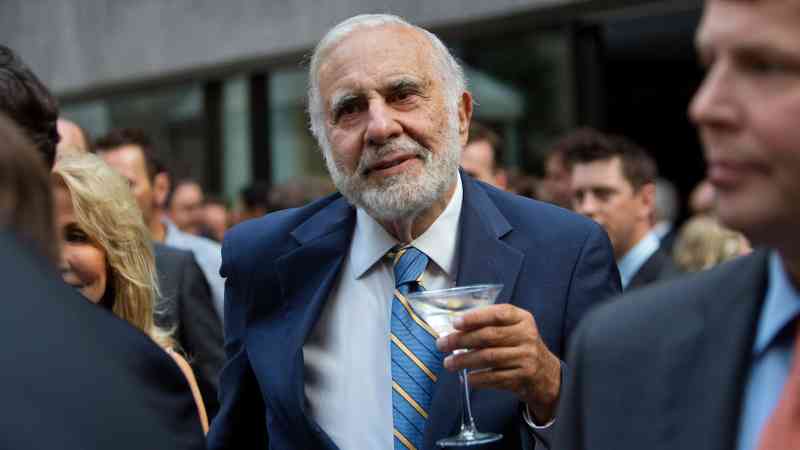SEC settles with Carl Icahn over claims he used firm to secure loans
Carl Icahn, one of America’s best-known activist investors, and his company have been charged by regulators in the United States with failing to disclose personal loans worth billions of dollars that were secured using securities of Icahn Enterprises as collateral.
Icahn Enterprises and Icahn, 88, had agreed to pay $1.5 million and $500,000 in civil penalties, respectively, to settle the charges, the US Securities and Exchange Commission said.
The agency said that from at least the end of December 2018 to the present, Icahn had pledged approximately 51 per cent to 82 per cent of Icahn Enterprises’ outstanding securities as collateral to secure personal loans with a number of lenders.
The financial regulator said Icahn Enterprises had failed to disclose Icahn’s pledges of the company’s securities, as required in its annual report, until February 2022. Icahn also failed to file amendments to a required regulatory filing describing his personal loan agreements and amendments, which dated back to at least 2005, and failed to attach required guaranty agreements. Icahn’s failure to file the required amendments to the regulatory filing had persisted until at least July 2023, the agency said.
Icahn, who inspired Oliver Stone’s ruthless financier Gordon Gekko in the 1987 film Wall Street, became known as a corporate raider in the 1980s when he engineered a takeover of TWA, or Trans World Airlines. He bought the airline in 1985, but by 1992 it had filed for bankruptcy. TWA emerged from bankruptcy a year later, but continued to operate at a loss and its assets were sold to American Airlines in 2001. In February Icahn took a near-10 per cent stake in JetBlue.
Icahn Enterprises and Icahn, without admitting or denying the findings, have agreed to cease and desist from future violations and to pay the civil penalties.
In May 2023 Icahn Enterprises’ shares fell sharply after a report from Hindenburg Research, the short-selling firm. In the report, Hindenburg claimed that Icahn Enterprises had been using inflated asset valuations. The report also pointed to “Ponzi-like economic structures” at the holding company, alleging that Icahn had used money from new investors to pay out dividends to old ones.
In a statement, Icahn hit back at Hindenburg. “After Hindenburg issued a false report to make money on its short position at the expense of ordinary investors, the government investigation that followed has resulted in this settlement, which makes no claim [Icahn Enterprises] or I inflated [net asset value] or engaged in a ‘Ponzi-like’ structure,” he said.
“Hindenburg’s modus operandi, which is to publish scurrilous and unsupported allegations, did damage to [Icahn Enterprises] and its investors. We are glad to put this matter behind us and will continue to focus on operating the business for the benefit of unit-holders.”




Post Comment